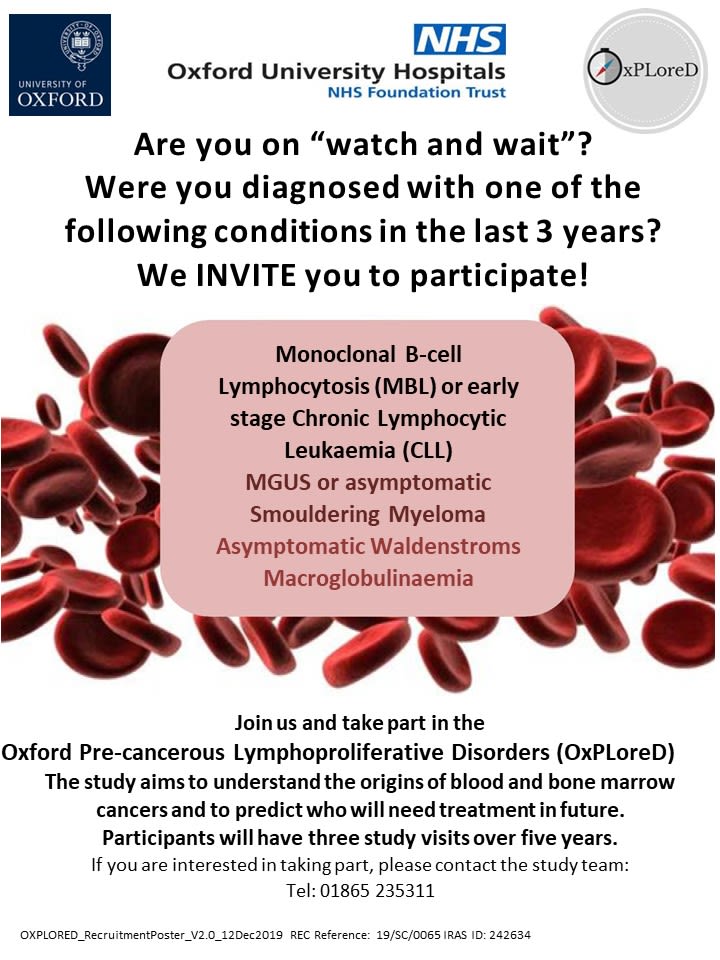The University of Oxford is looking for MGUS (monoclonal gammopathy of undetermined significance), smouldering myeloma and Waldenstrom’s macroglobulinemia patients to join the OxPLoreD study.
The study hopes to identify markers that can determine if patients with early-stage lymphoproliferative disorders are more or less likely to develop cancer. It will monitor patients over five years, collecting and analysing patient data and samples (blood, urine and/or bone marrow) to understand the mechanisms and markers of progression to cancers, such as myeloma. These markers might be symptoms, genetic mutations, or biomarkers in blood or bone marrow.
Myeloma develops from MGUS and smouldering myeloma; however, not all MGUS or smouldering myeloma patients will progress to myeloma. The risk of progression from MGUS is 1% per year, and 50% of smouldering myeloma patients will develop myeloma within five years of diagnosis. However, we don’t know why some patients progress, and others don’t. Therefore, there is currently no clear way to identify the patients most at risk of developing myeloma.
In the longer term, it’s hoped this study may also shed light on which people would benefit from certain types of treatment or early-stage treatment and confidently reassure those who will never progress.
Recruitment to the study has started at six hospitals across England: Nottingham, Surrey, Sunderland, Bournemouth, Plymouth, and Oxford.
Researchers and clinicians wanting to know more or get involved in the study should contact the study team on 01865 235311 or visit the study website.

